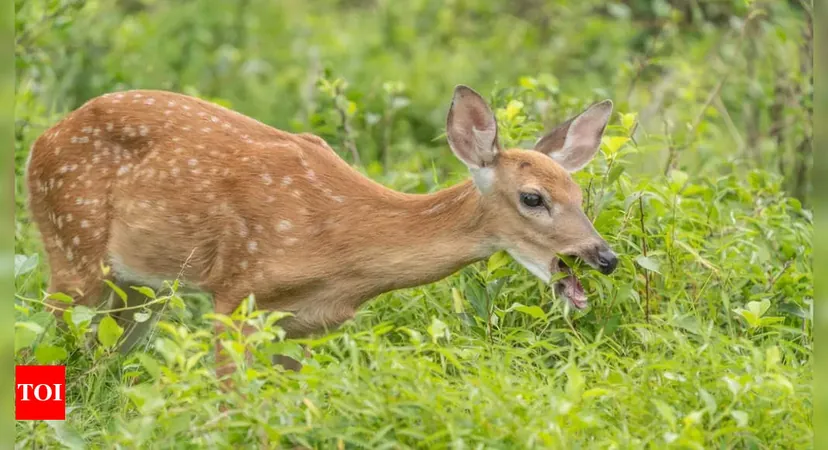
Deadly 'Zombie Deer' Disease: A Looming Human Health Crisis?
2025-01-14
Author: Siti
In a chilling warning that has scientists on high alert, Chronic Wasting Disease (CWD)—often referred to as the 'zombie deer' disease due to the disturbing symptoms it causes in infected animals—could evolve to pose a significant risk to human health.
This incurable prion disease currently affects deer, elk, and other grazing animals, but researchers are increasingly worried about its potential leap to humans.
Chronic Wasting Disease has already been detected in feral pigs, raising fears about how easily it could spread.
If the virus can transmit through these animals, scientists suggest it could potentially infect domestic swine as well, presenting serious implications for the agricultural industry and food supply chains.
“If feral pigs can become infected, what does that mean for domestic animals?
We could see drastic implications for the cattle and swine markets,” warned Dr. Michael Osterholm, a leading infectious disease expert at the University of Minnesota.
The spread of CWD is alarming, with its presence confirmed in at least 33 states, including hotspots such as Wyoming, Wisconsin, Colorado, and parts of Pennsylvania.
The disease is transmitted through body fluids, including saliva, urine, blood, and feces.
What's even more unsettling is that conventional cooking methods may not eliminate the prions responsible for CWD,
which could mean that hunting and consuming the meat of affected animals carries serious risks.
Symptoms in animals infected with CWD mirror those seen in other prion diseases:
drooling, confusion, severe weight loss, aggression, and a loss of coordination.
These disturbing signs typically manifest about a year post-infection,
further complicating the challenge of controlling the disease's spread.
While no confirmed cases of CWD infection in humans have been documented, fears spiked following reports in April 2024 of several individuals diagnosed with Creutzfeldt-Jakob Disease (CJD), a rare neurodegenerative disorder linked to prions.
The CDC has stated there is currently no evidence that CWD can infect humans, yet experts remain cautious.
The consequences of a spillover event could be catastrophic,
as the outbreak of bovine spongiform encephalopathy (mad cow disease) in the UK demonstrated.
Dr. Cory Anderson from the Center for Infectious Disease Research and Policy emphasized the urgency of preparing for such a potential event:
“The BSE outbreak showed that public health can face dire challenges when an animal disease crosses over to humans.
We need to be vigilant,
even if the chances of CWD infecting humans seem slim at the moment.”
With the rapid spread of CWD and the possibility of new strains emerging,
the call for enhanced monitoring and research has never been more pressing.
As scientists continue to investigate the implications of this 'zombie deer' disease,
the need for awareness and precaution cannot be overstated.
Once a disease of the wild,
CWD's alarming trajectory might soon change the way we view wildlife health and human safety—potentially ushering in a new public health crisis that we are ill-prepared to tackle.

 Brasil (PT)
Brasil (PT)
 Canada (EN)
Canada (EN)
 Chile (ES)
Chile (ES)
 Česko (CS)
Česko (CS)
 대한민국 (KO)
대한민국 (KO)
 España (ES)
España (ES)
 France (FR)
France (FR)
 Hong Kong (EN)
Hong Kong (EN)
 Italia (IT)
Italia (IT)
 日本 (JA)
日本 (JA)
 Magyarország (HU)
Magyarország (HU)
 Norge (NO)
Norge (NO)
 Polska (PL)
Polska (PL)
 Schweiz (DE)
Schweiz (DE)
 Singapore (EN)
Singapore (EN)
 Sverige (SV)
Sverige (SV)
 Suomi (FI)
Suomi (FI)
 Türkiye (TR)
Türkiye (TR)
 الإمارات العربية المتحدة (AR)
الإمارات العربية المتحدة (AR)